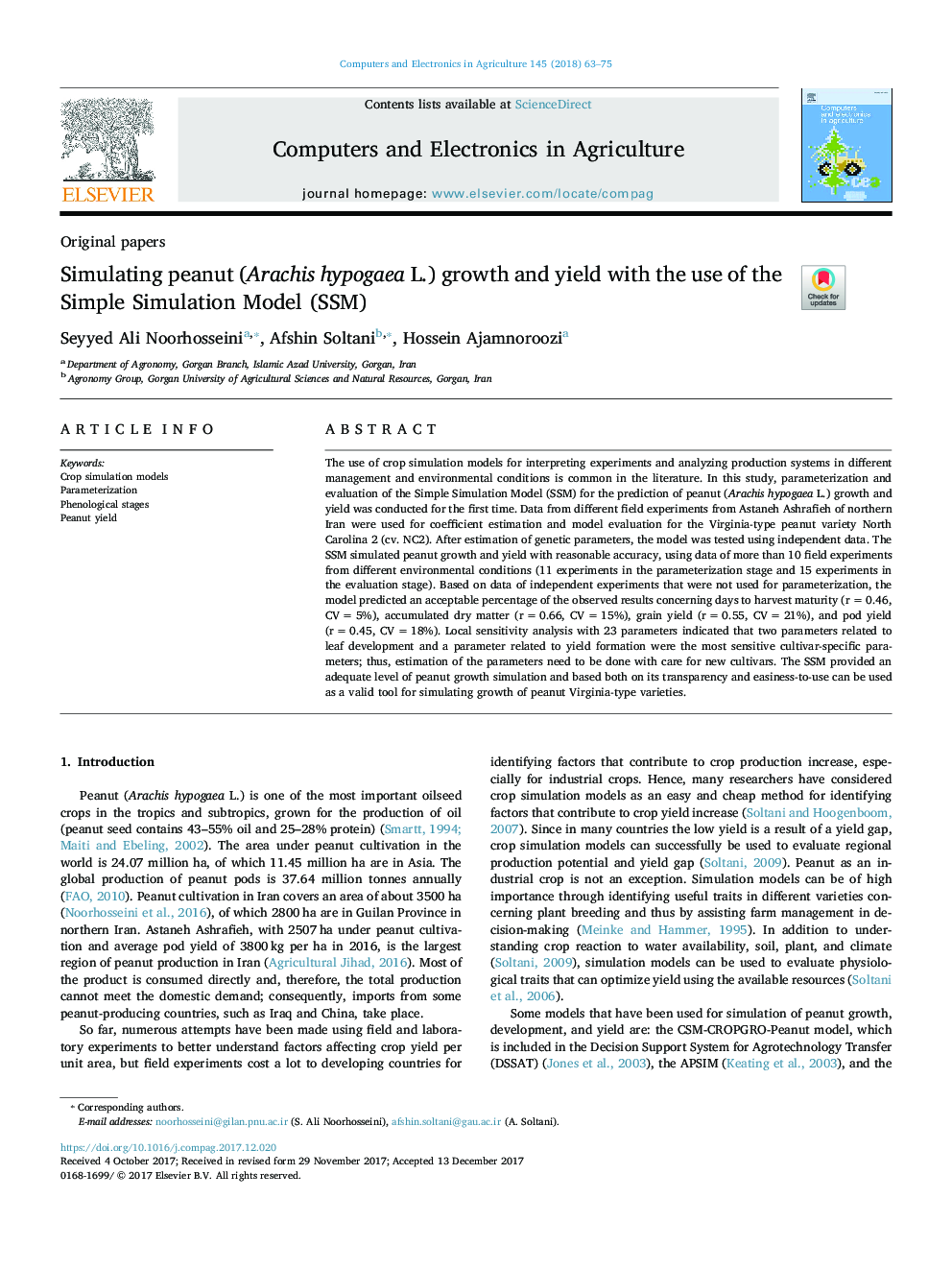| Article ID | Journal | Published Year | Pages | File Type |
|---|---|---|---|---|
| 6539734 | Computers and Electronics in Agriculture | 2018 | 13 Pages |
Abstract
The use of crop simulation models for interpreting experiments and analyzing production systems in different management and environmental conditions is common in the literature. In this study, parameterization and evaluation of the Simple Simulation Model (SSM) for the prediction of peanut (Arachis hypogaea L.) growth and yield was conducted for the first time. Data from different field experiments from Astaneh Ashrafieh of northern Iran were used for coefficient estimation and model evaluation for the Virginia-type peanut variety North Carolina 2 (cv. NC2). After estimation of genetic parameters, the model was tested using independent data. The SSM simulated peanut growth and yield with reasonable accuracy, using data of more than 10 field experiments from different environmental conditions (11 experiments in the parameterization stage and 15 experiments in the evaluation stage). Based on data of independent experiments that were not used for parameterization, the model predicted an acceptable percentage of the observed results concerning days to harvest maturity (râ¯=â¯0.46, CVâ¯=â¯5%), accumulated dry matter (râ¯=â¯0.66, CVâ¯=â¯15%), grain yield (râ¯=â¯0.55, CVâ¯=â¯21%), and pod yield (râ¯=â¯0.45, CVâ¯=â¯18%). Local sensitivity analysis with 23 parameters indicated that two parameters related to leaf development and a parameter related to yield formation were the most sensitive cultivar-specific parameters; thus, estimation of the parameters need to be done with care for new cultivars. The SSM provided an adequate level of peanut growth simulation and based both on its transparency and easiness-to-use can be used as a valid tool for simulating growth of peanut Virginia-type varieties.
Related Topics
Physical Sciences and Engineering
Computer Science
Computer Science Applications
Authors
Seyyed Ali Noorhosseini, Afshin Soltani, Hossein Ajamnoroozi,
